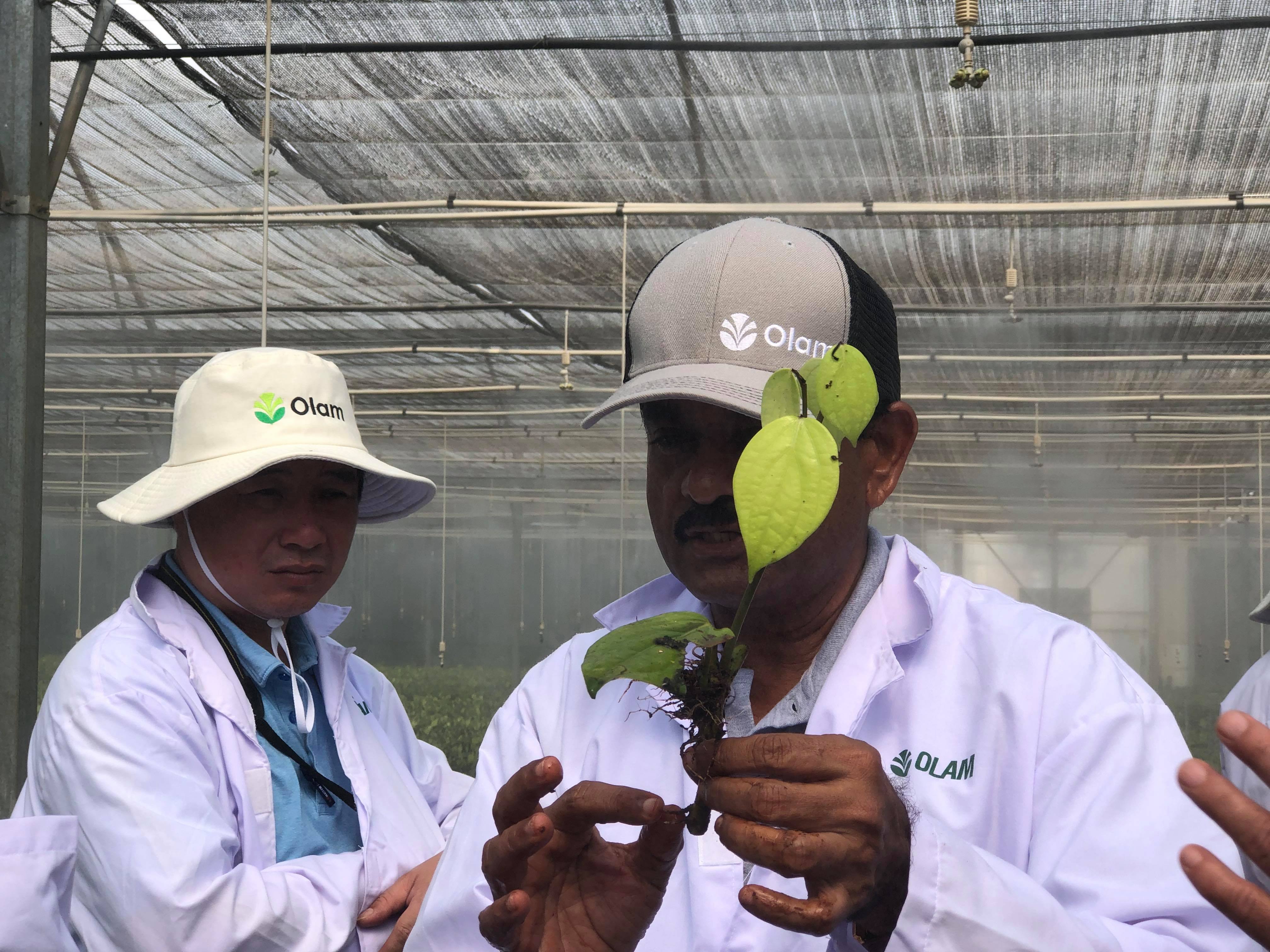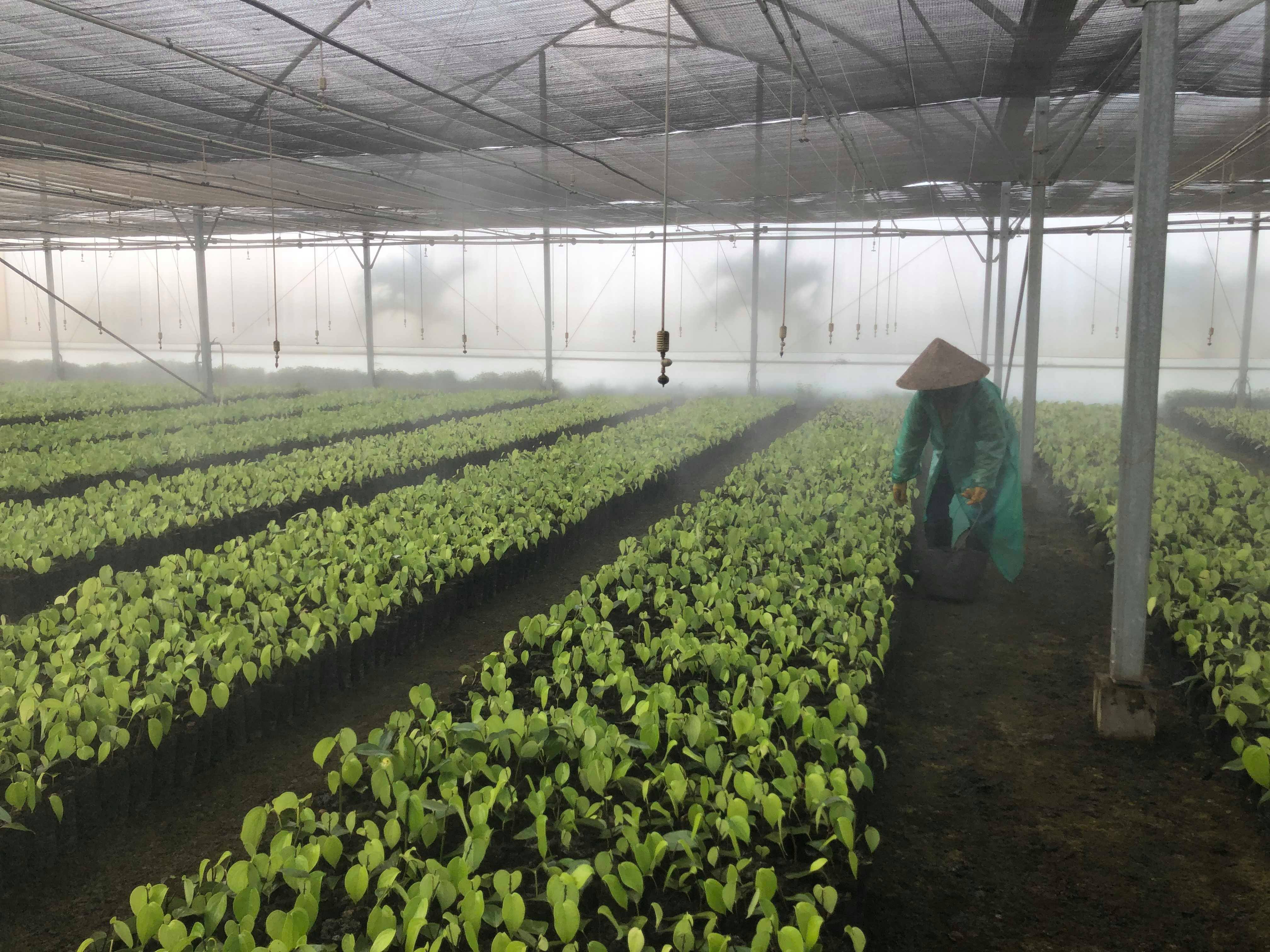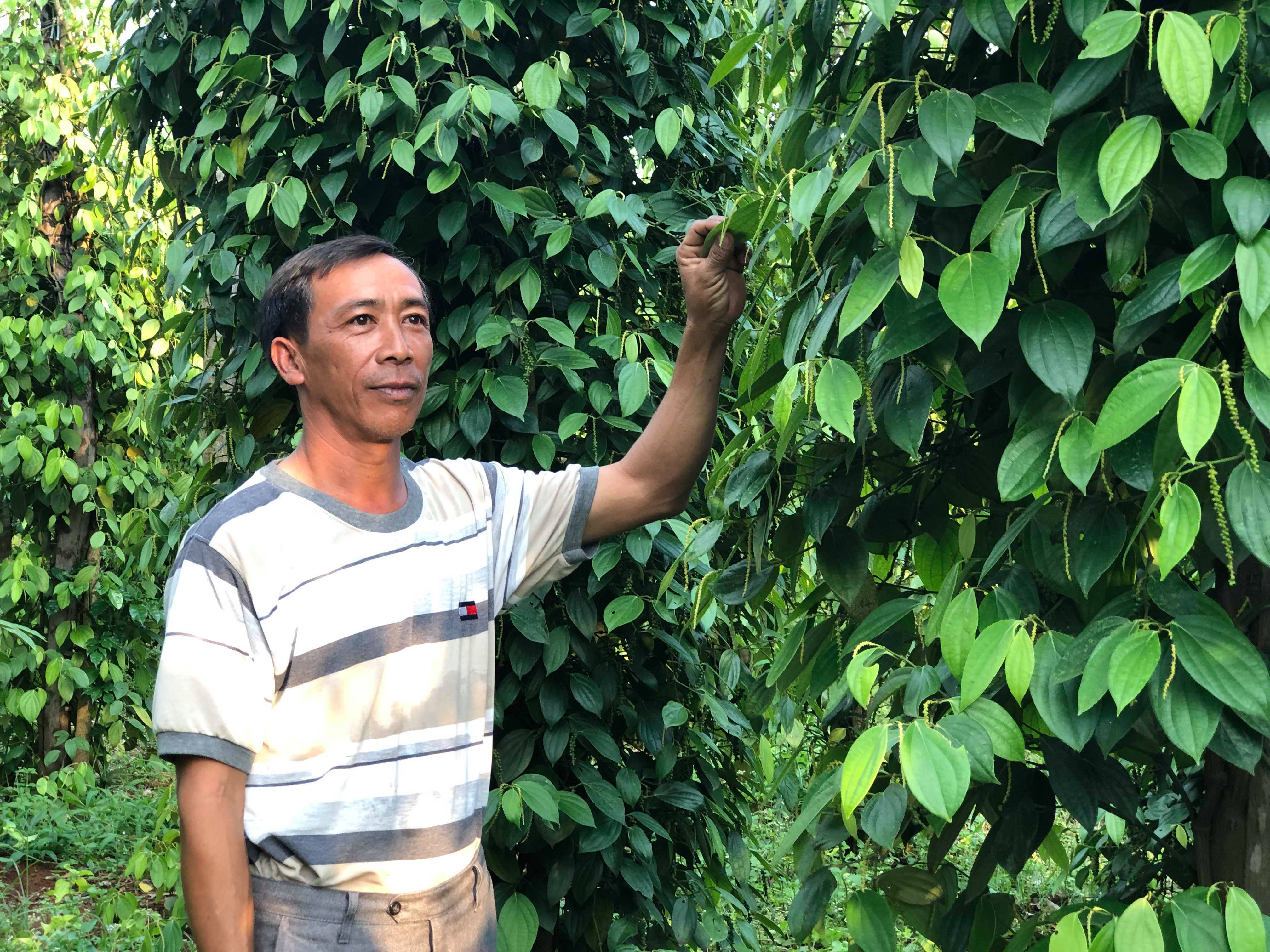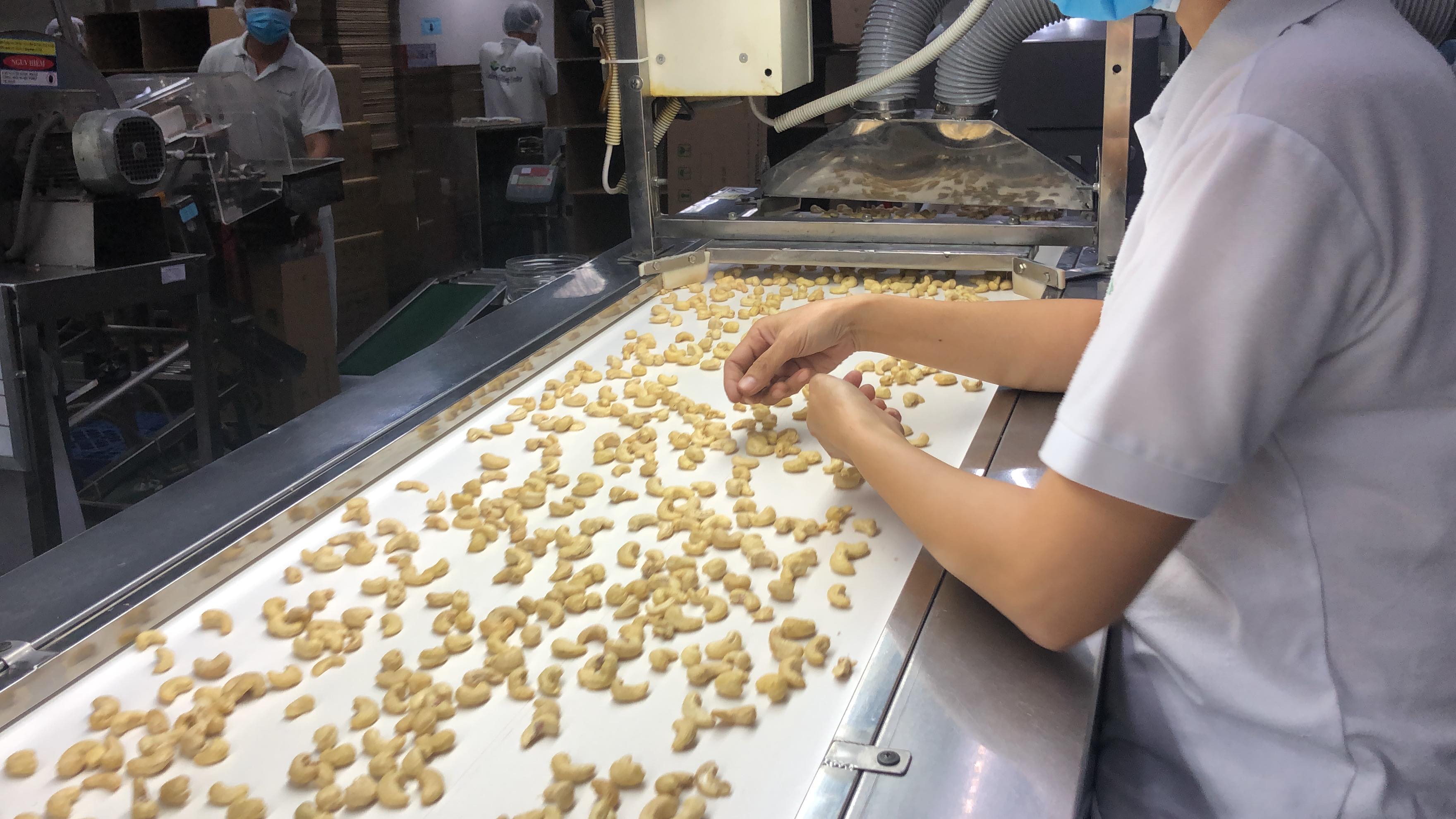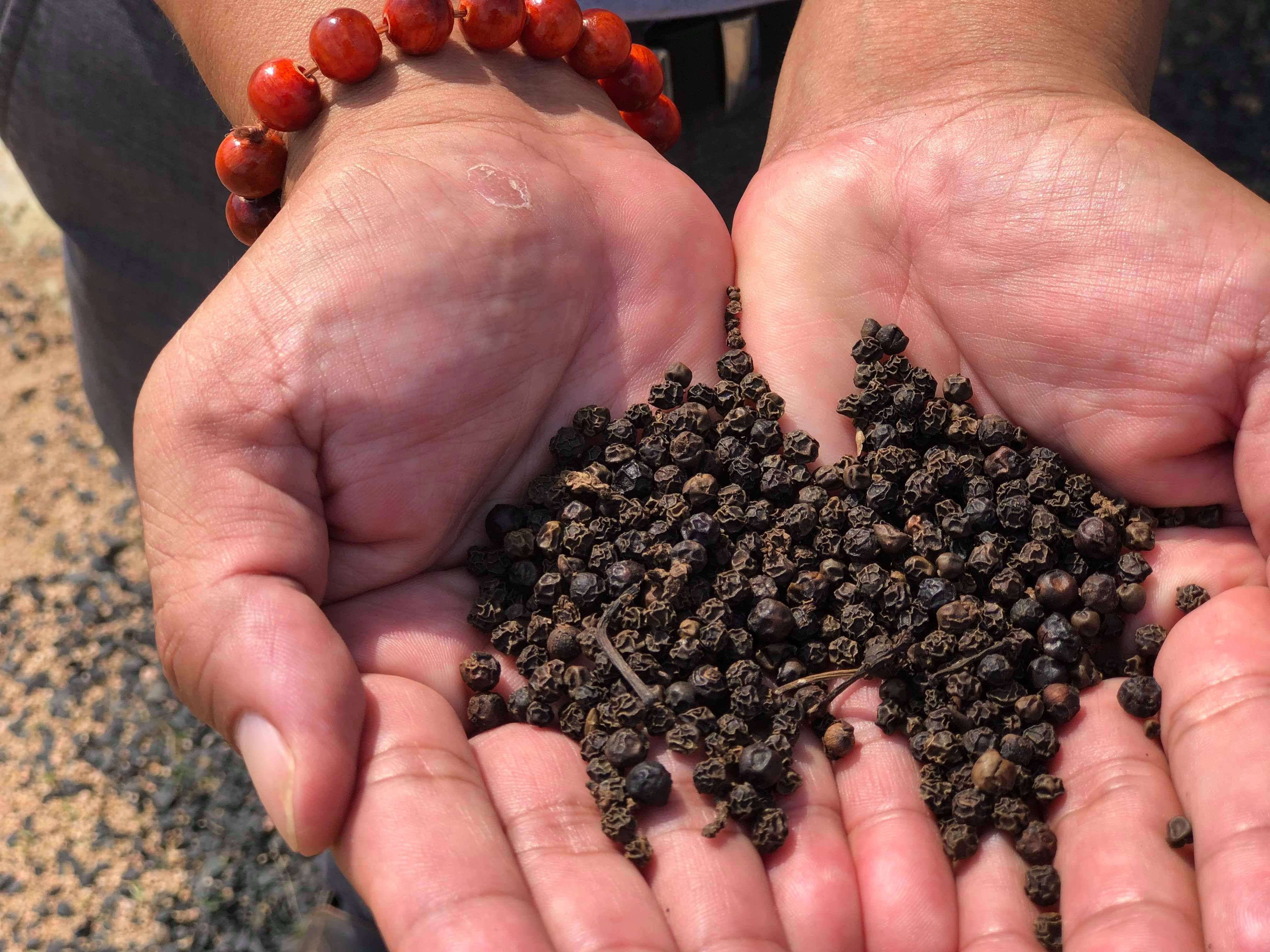If pepper, almonds, cashew nuts, walnuts, coffee, rice, cinnamon, and nutmeg in Vietnam have one thing in common, it is that this group of seeds and spices is made by Olam – an expert on nuts and spices, among many other agri-commodities.
Adding flavors to the global kitchen
“Vietnamese black pepper is present in kitchens around the world,” confirmed Lingaiah Veluswamy, director of Olam's pepper farm in La Le Commune, Chu Pưh District, Gia Lai Province.
Veluswamy is proud to introduce the original varieties of pepper like Vinh Linh, Binh Phuoc, Sri Lanka, and more at the farm which has large, healthy, and disease-free soil for growing, developed by Olam experts.
“On the allocated area, we only use 30 percent to plant pepper (currently planting 200 hectares, 325 hectares in the future), the rest is afforestation and ancillary work. Our goal is to build a model of sustainable pepper production, achieving Global GAP quality – Global Good Agricultural Practices,” said Veluswamy.
The pepper farm is equipped with a drip irrigation system, misting irrigation system, and humidity and temperature control sensor system.
The entire garden is isolated from the outside environment, and people going in and out must disinfect their shoes to avoid bringing germs into the nursery.
|
|
| The pepper nursery in Olam’s pepper plantation in Ia Le village, Chư Pưh District, Gia Lai Province. Photo: Hong Van |
Global GAP certification gives consumers traceability of products and is evidence that Olam has striven to provide safe food, protect the environment, and create a safer working environment for farmers.
In the major pepper area of Vietnam, Gia Lai Province, Olam has training programs and provides technical advice to farmers on new pepper cultivation, encouraging the reduction of chemical use, using grass to keep moisture in the soil, planting shallow pepper instead of digging deep holes, shallow logging service, and reducing investment spending through management of scientific farming.
Farmer Nguyen Van Quang, 50, who lives in Ia Phang Commune, said: “My family has three generations growing pepper, but the pepper tree is sensitive and difficult to grow. Although experienced, I still need to learn and change. From 2004 until now, I have failed to plant pepper several times and there were a series of dying crops due to diseases. The old way will get us stuck, so I participated in Olam's training course to work toward sustainable pepper cultivation.”
|
|
| Nguyen Van Quang, a pepper farmer in Ia Phang village, Gia Lai Province. Photo: Hong Van |
On an area of over one hectare, Hop has about 2,000 drainage posts. Olam buys pepper from farmers like him. Then the pepper is treated at the factory with steam sterilization and processed into ground pepper and white pepper in accordance with the size required by customers.
Vietnamese pepper accounts for 40 percent of global production and 60 percent of global transactions, adding to the spice for meals of millions of families around the world.
Accompanying farmers
Apart from cashew nuts, Vietnam does not grow many common nuts known to consumers such as walnuts, almonds, pistachios, and others. However, with competitive labor costs, skilled workers and leveraging the scale of global and business conditions in Vietnam, Olam imports nuts for processing and then exports them for a profit, keeping the value added within the country.
|
|
| A female staff member sorts out the lower quality cashews from the carousel at Olam’s cashew factory in Dong Nai Province. Photo: Hong Van |
Sorting and packing of almonds and cashew processing in Tien Nga and Bien Hoa operate in this direction. Seeds are processed according to customers’ requirements such as the separation of kernel skin, white seeds, natural roasted seeds; and raw materials are sliced, cut locally, finely ground in all sizes, and processed in liquid form.
Olam also assisted cashew farmers in Binh Phuoc in establishing new cooperatives and achieving Fair Trade certification so they can sell cashews at a better price.
As in many parts of the world and in Vietnam, a team of experts and technicians of the company are present in the area, ready to assist farmers with techniques such as keeping the garden clean, having separate warehouse to store appliances, ensuring all waste products (such as fertilizer bags, bottles, pesticides, and more) are collected and disposed of in the right places and not discharged into the environment.
Pham Quoc Dai, 36 years old, a member of Hop Luc Phat Cooperative in Phuoc Son Commune, Bu Dang District, Binh Phuoc Province, said: “At the start, I cultivated my crops by instinct. Now I know how to fertilize and prune trees at the right time. I now have time to rest myself when I have completed the proper technical care for the tree.”
Cashew farmers in Binh Phuoc are satisfied with the change in their lives when joining the cooperative. They are guaranteed the purchase price of the day, selling cashew nuts at home instead of having to carry their products and go peddling "like selling coffee” as before, said Nguyen Xuan Hop, 55 years old.
Cashew farms with a stable output and good prices benefit the father of four, who has two children attending school and the other two having gone on to work with great hopes. Hop wishes to buy a car in the future with the crops in his garden.
|
Olam is a leading agricultural and food enterprise providing food, raw materials, animal feed, and fiber to about 20,000 customers around the world with supply chains in more than 60 countries. Unless you’re an industry expert, Olam’s name will be unfamiliar to most people in Vietnam as the company is better known for supplying raw or processed materials to large companies globally, though it has also expanded into upstream farming and plantation operations, as well as direct-to-consumer brands in Africa.
In Vietnam, Olam has facilities in 22 establishments in many provinces and cities and is the market leader in the fields of cashew production and export of instant coffee. Olam works with 34,000 farmers locally and is one of the country’s 100 leading business enterprises according to VNR500. The company's Vietnam operations are its largest in Asia. |



